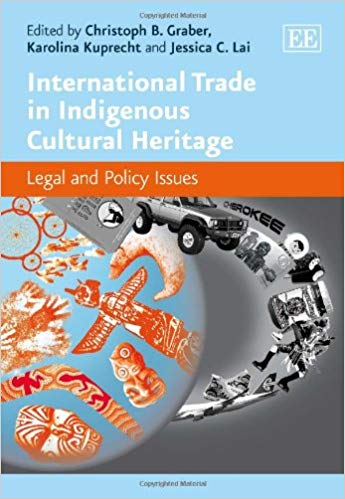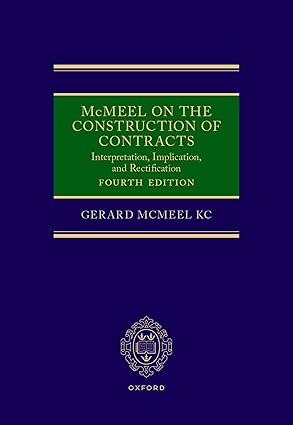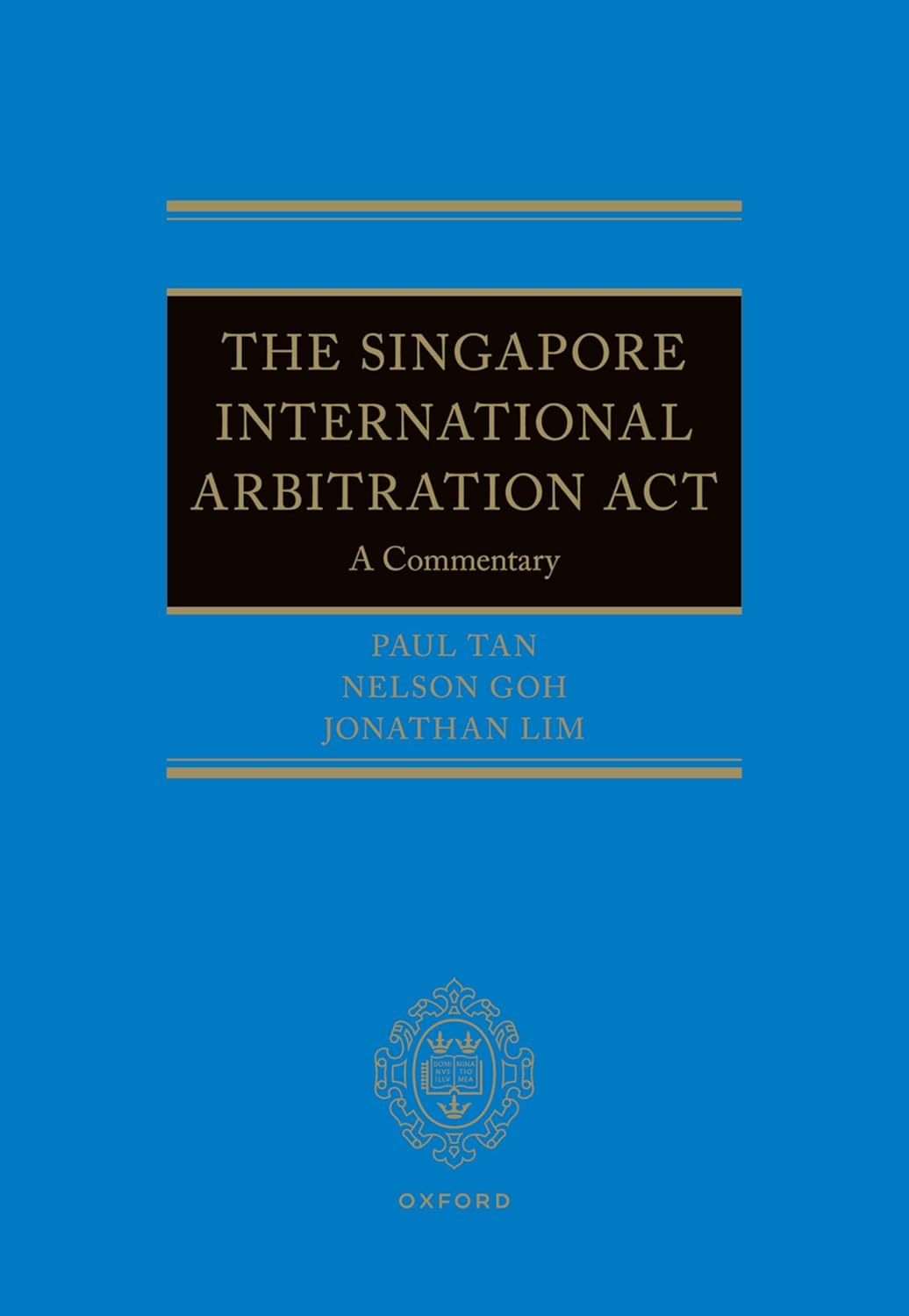'This timely and pioneering volume provides an ethnically sensitive exploration of the international trade in indigenous cultural heritage. The country reports are informative and insightful; they greatly enrich our understanding of the realities on the ground in Australia, Canada, New Zealand and the United States. The book also contains concrete and practical recommendations. It is essential reading for anyone interested in learning more about the protection and development of indigenous cultural heritage.'
- Peter K. Yu, Drake University Law School, US
'Christoph Graber, Karolina Kuprecht and Jessica Lai have brought together authors who know the field, given them a set of concrete themes and through meticulous editing have produced an integrated work that has the strength of collective insight. This book sets the standard for researchers working on those difficult issues raised by trade and commerce in indigenous cultural heritage.'
- Peter Drahos, Australian National University
This topical book brings to the fore new and standard-setting research into the connection between indigenous cultural heritage, international trade and economic development of indigenous peoples.
The book is unique in taking a multi-faceted approach to cultural heritage, incorporating discussion on tangible and intangible, moveable and immoveable elements of indigenous peoples' culture. From the perspectives of several international legal fields, including trade law, intellectual property, cultural property, cultural heritage law and human rights, the book explores how indigenous peoples could be empowered to participate more actively in the trade of their cultural heritage without being compelled to renounce important traditional values. The national and local legal realities in four jurisdictions (New Zealand, Australia, United States and Canada) lay the scene for a wide-ranging analysis of various possibilities and proposals on how this might be achieved.
International Trade in Indigenous Cultural Heritage will appeal to legal scholars and practitioners interested in cultural property and heritage, intellectual property, trade law and human rights. Policy-makers within governmental departments and international organisations will also find much to interest them in this detailed study as will anyone working in the field of indigenous rights.
Contributors: C. Antons, F. Bandarin, C. Bell, K. Bowrey, D. Champagne, P.L.A.H. Chartrand, R.J. Coombe, S. Frankel, M. Girsberger, C.E. Goldberg, C.B. Graber, K. Kuprecht, J.C. Lai, F. Lenzerini, F. Macmillan, B. Müller, J. Scott, K. Siehr, R. Tsosie, J.F. Turcotte, B. Vézina
چکیده فارسی
'این جلد به موقع و پیشگام، کاوش حساس قومی را در مورد تجارت بین المللی میراث فرهنگی بومی فراهم می کند. گزارش های کشور آموزنده و روشنگر هستند. آنها درک ما را از واقعیت های موجود در استرالیا، کانادا، نیوزیلند و ایالات متحده بسیار غنی می کنند. این کتاب همچنین حاوی توصیه های ملموس و کاربردی است. خواندن آن برای هر کسی که علاقه مند به کسب اطلاعات بیشتر در مورد حفاظت و توسعه میراث فرهنگی بومی است ضروری است.'
- پیتر کی یو، دانشکده حقوق دانشگاه دریک، ایالات متحده
'کریستف گرابر، کارولینا کوپرشت و جسیکا لای نویسندگانی را گرد هم آوردهاند که این حوزه را میشناسند، مجموعهای از مضامین مشخص را به آنها دادهاند و از طریق ویرایش دقیق، اثری یکپارچه تولید کردهاند که قدرت بینش جمعی را دارد. این کتاب معیاری را برای محققانی تعیین میکند که روی موضوعات دشواری که تجارت و بازرگانی در میراث فرهنگی بومی مطرح میکنند کار میکنند.'
- پیتر درهوس، دانشگاه ملی استرالیا
این کتاب موضوعی تحقیقات جدید و استانداردی را در مورد ارتباط بین میراث فرهنگی بومی، تجارت بینالمللی و توسعه اقتصادی مردم بومی به منصه ظهور میرساند.
این کتاب در رویکردی چندوجهی به میراث فرهنگی منحصر به فرد است، که شامل بحث در مورد عناصر ملموس و ناملموس، متحرک و غیرقابل حرکت فرهنگ مردم بومی است. از دیدگاه چندین حوزه حقوقی بینالمللی، از جمله حقوق تجارت، مالکیت معنوی، مالکیت فرهنگی، حقوق میراث فرهنگی و حقوق بشر، این کتاب به بررسی این موضوع میپردازد که چگونه مردم بومی میتوانند برای مشارکت فعالتر در تجارت میراث فرهنگی خود بدون اجبار به ارزش های سنتی مهم را کنار بگذارند. واقعیت های حقوقی ملی و محلی در چهار حوزه قضایی (نیوزیلند، استرالیا، ایالات متحده و کانادا) زمینه را برای تجزیه و تحلیل گسترده ای از احتمالات و پیشنهادات مختلف در مورد چگونگی دستیابی به این امر فراهم می کند.
تجارت بینالمللی میراث فرهنگی بومی برای محققین حقوقی و متخصصان علاقهمند به دارایی و میراث فرهنگی، مالکیت معنوی، قانون تجارت و حقوق بشر جذاب خواهد بود. سیاستگذاران در ادارات دولتی و سازمانهای بینالمللی نیز مانند هر کسی که در زمینه حقوق بومیان کار میکند، چیزهای زیادی را در این مطالعه مفصل مورد توجه قرار خواهند داد.
مشارکت کنندگان: سی. آنتونز، اف. بندرین، سی. بل، کی. باوری، دی. شامپاین، پی.ال.ا.ا.ا. چارتراند، آر.جی. کومبه، اس. فرانکل، ام. گیرزبرگر، سی. ای. گلدبرگ، سی بی گرابر، کی. کوپرشت، جی سی لای، اف. B. Vézina
ادامه ...
بستن ...










